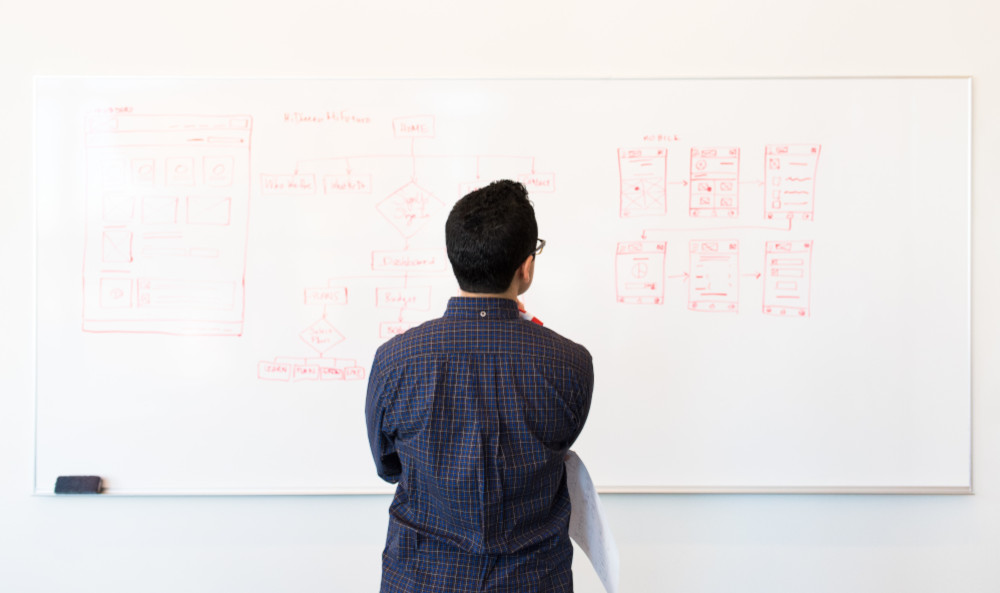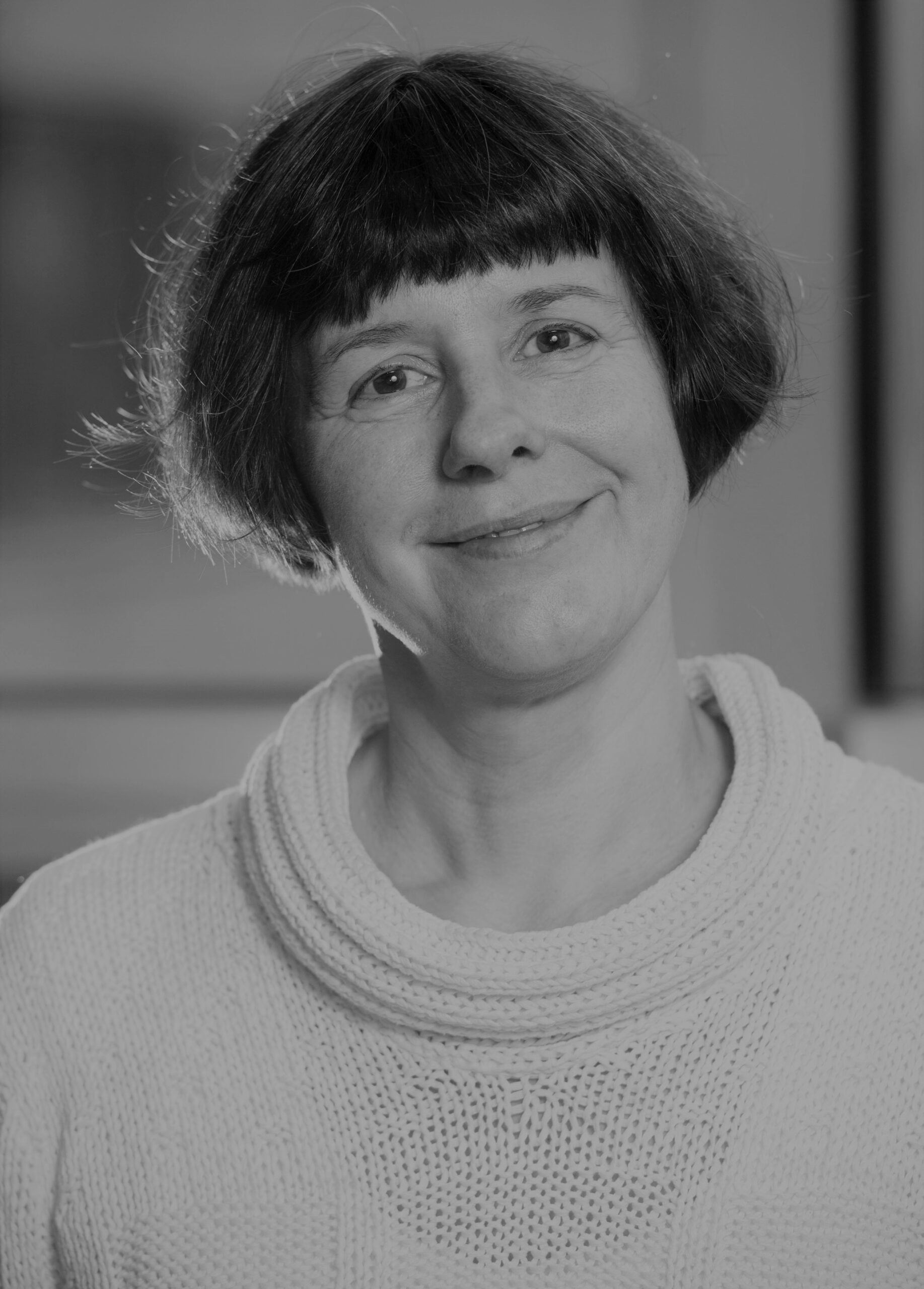
In this post, Andy Cross and Sabine Rolle take up their new undergraduate programme at the Edinburgh Futures Institute to discuss the urgent need to integrate reflective practices at the level of the programme – outlining how, and why, reflection must be understood as a structural intervention within the learning environment. This post is part of the Learning & Teaching Enhancement Series: Reflective Learning.
What is reflection?
Reflection, or reflective practice, has a long tradition going back to the seminal work of Dewey (1933) on reflective thinking for personal and intellectual growth. The benefits of reflection are widely known and reported, and reflection and related notions are accepted across a variety of academic disciplines and health and social professions. It is generally regarded as being valuable for both lifelong learning and professional practice, and it is now widely adopted across higher education (Van Beveren et al., 2018).
Although there is widespread debate on the theoretical approaches to reflection, and the subsequent conceptual ambiguity it has when integrating it into educational contexts and practice (Jay and Johnson, 2002), at its heart reflection is ‘a form of response of the learner to the experience’, where people ‘recapture their experience, think about it, mull it over and evaluate it’ (Boud, Keough and Walker, 1985). The key premise of this reflection is that participants need to critically reflect on what is going/went well and what is/did not (and their role in this), and then to deeply consider how this will inform what they do next (Boud et al., 1993; Schön, 1983). Schön’s foundational theory on reflection from the 1980s highlights the importance of engendering opportunities for students to learn, practice, and develop these skills of reflection into practice-based (experiential) educational programmes. And crucially, the literature suggests that reflection should not just happen at the end of a course or programme, but should be integrated throughout.
With this in mind, our approach in the Edinburgh Futures Institute (EFI) is to embed reflection at the programme level, rather than just through individual course assessments (of which there are plenty of good examples from across the University).
The new EFI undergraduate programme
Our new EFI undergraduate programme, the MA (Hons) Interdisciplinary Futures, is aligned with EFI’s aim to build educational programmes that encourage students to challenge, create, and change. Using a problem-based, experiential approach to student learning, it scaffolds students’ activities and learning around a series of challenge questions (linked to Grand Challenges and the UN’s Sustainable Development Goals). Those challenges are almost by definition so complex that they are beyond the reach of a single discipline, and thus our programme is interdisciplinary in outlook and design from the very start.
Our market research has shown that students are potentially very excited about this approach. It may not be for everyone, but there is a growing number of prospective students who will love to learn skills and methods taken from different areas of academic enquiry and analysis, and use them to explore some of the big questions our world is facing today. However, it is also very clear that this is a very challenging for our prospective students. This kind of interdisciplinary and problem-based learning, with its lack of neat answers and the need to cope with high levels of uncertainty or ambiguity, will take many of them out of their comfort zone.
Embedding reflection
We were very clear, therefore, that our programme would need potentially even higher levels of academic support to help students in their transition and progression to and through such a degree. Based on the overwhelming evidence of reflection in supporting the approaches outlined above, we decided to make this a core pillar of this support. In fact, reflection is so central to our thinking that we designed a whole core course: ‘Reflections on Interdisciplinary Practice’.
In this course, which is a compulsory part of the degree in each of the four undergraduate years, students will be asked to bring together, synthesise, and make sense of their learning from across the whole programme (and indeed also any related and suitable learning experience from beyond the classroom). They will be introduced to a variety of ‘meaning-making’ theories and methods to help them understand how knowledge is created, organised, and communicated, including the assumptions underlying this knowledge creation in different disciplines. And they will be asked to reflect throughout the course. Our students will regularly produce short reflective pieces, utilising appropriate frameworks for reflection as introduced in the University’s Reflection Toolkit, allowing them to capture and process their experiences from all their courses and link them to the overall programme-level Learning Outcomes. Our hope is that our students will become skilled reflective practitioners, able to reflect on and apply their learning well beyond our programme.
We’d be keen to hear from colleagues who are considering similar approaches in their programmes, so that we can share and further develop our models and practice together.
References
Boud, D.J., Keogh, R. & Walker, D. (1985). Reflection: Turning Experience into Learning. London: Logan Page
Boud, D., Cohen, R. & Walker, D. (1993). Using experience for learning. Buckingham: Open University Press
Dewey. J. (1993). How we think: A restatement of the relation of reflective thinking to the educative process. Ney York: D.C Heath & Company
Jay, J. K., & Johnson, K. L. (2002). Capturing complexity: A typology of reflective practice for teacher education. Teaching and Teacher Education, 18(1), 73–85
Schön, D. (1983). The Reflective Practitioner. How professionals think in action. London: Temple Smith
Van Beveren, L., Roets, G., Buysse, A. & Rutten K. (2018). We all reflect, but why? A systematic review of the purposes of reflection in higher education in social and behavioral sciences. Educational Research Review 24: 1–9
Andy Cross
Dr Andy Cross is the Impact Coordinator for the School of GeoSciences, and a Senior Fellow of the Higher Education Academy. He is the Geosciences Outreach Course Organiser and co-runs Currents: Understanding and Addressing Global Challenges at the Edinburgh Futures Institute.
 Sabine Rolle
Sabine Rolle
Professor Sabine Rolle is based in the Department of European Languages and Cultures (LLC) where she teaches courses on Discourse Analysis and German Medieval Literature. She is also Co-Director Education (UG) in the Edinburgh Futures Institute, leading on the development of the undergraduate provision which includes elective courses open to all students as well as a new programme on ‘Interdisciplinary Futures’. Since 2017, Sabine has been Dean of Education in the College of Arts, Humanities and Social Sciences. As part of this role, she is co-convening, together with Tina Harrison, the Assessment and Feedback workstream linked to the Curriculum Transformation Project.


